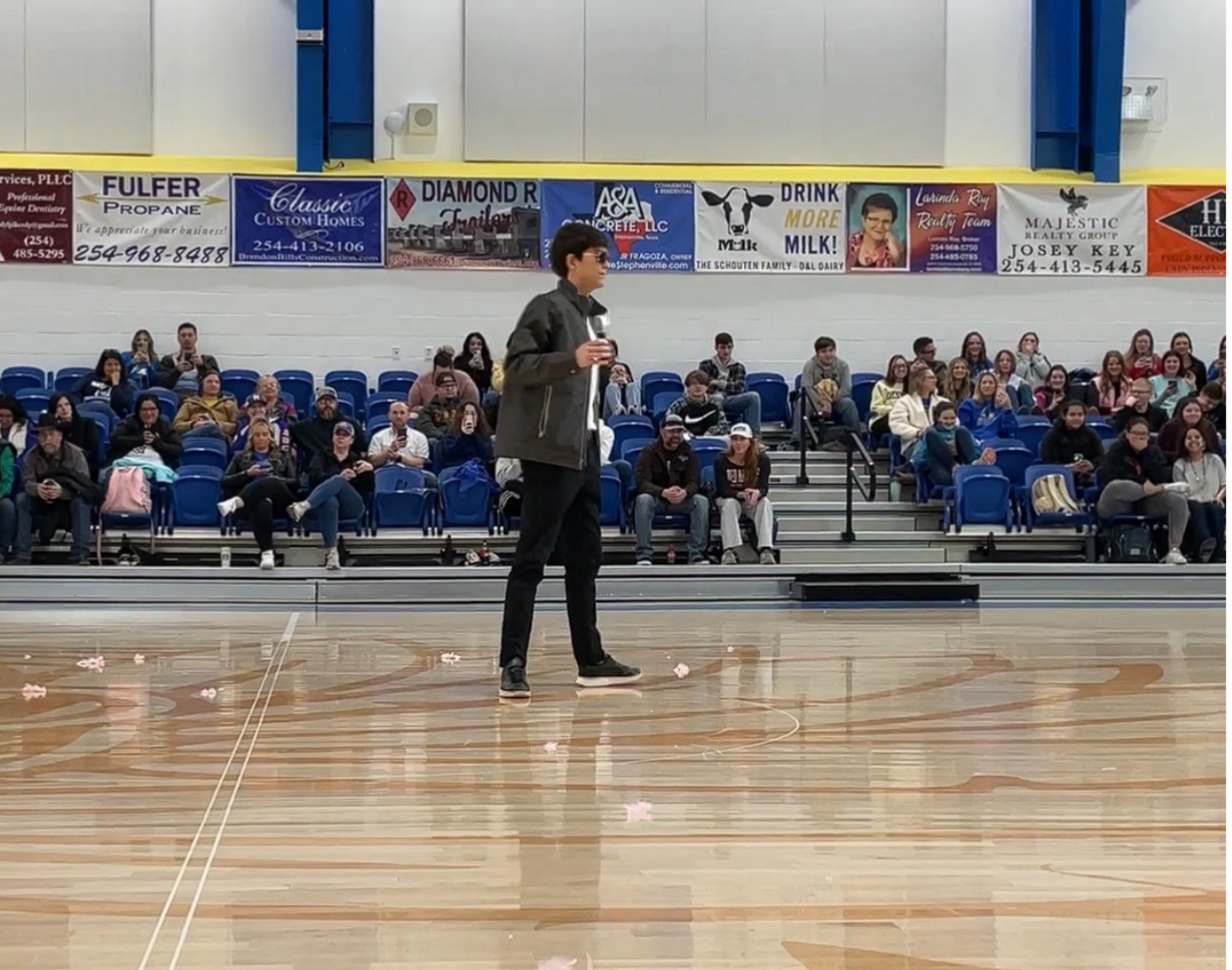When Mia stepped off the plane from Madrid and into the gray chill of Willow Creek, she realized two things immediately: one, she had never been this far from home before, and two, she had never been this alone.
Her host family, the Carters, greeted her with polite warmth. Mrs. Carter, a teacher at Willow Creek High, smiled often but seemed perpetually rushed. Mr. Carter talked about weather and football. Their daughter, Lila, a junior like Mia, gave her a quick hug and then disappeared into the glowing world of her phone.
Everything in Willow Creek was small—smaller streets, smaller houses, smaller expectations. Back in Spain, Mia’s life had been loud: music floating from apartment windows, the chaos of markets, her school choir’s rehearsals filling the hallways. Here, the silence pressed in like a weight.
Willow Creek High was no different. The first week, Mia wandered the halls like a shadow. Teachers smiled politely when they called her name from the attendance sheet, but classmates barely looked her way. Her accent and halting English made her feel like a record playing on the wrong speed.
But she carried her notebook everywhere, pages filled with song lyrics she had scribbled during long flights and sleepless nights. Music was her anchor.
One afternoon in October, as she lingered in the cafeteria, she overheard two girls at the next table.
“Spirit week’s coming,” one said. “They’re doing a talent showcase at the rally.”
Mia’s ears pricked. A stage? A microphone? For weeks she’d been yearning for a way to show who she was beyond the awkward exchange student with the funny accent.
That night, she stared at her notebook under the warm yellow light of her desk lamp. Could she really do it? Could she stand in front of hundreds of strangers and sing?
She remembered her choir teacher back in Madrid: Music doesn’t belong to the language. It belongs to the heart.
The decision settled in her chest like a drumbeat. She would audition.
The next morning, Mia approached the sign-up sheet taped to the student council’s office door. Her hand trembled as she wrote her name in looping letters: Mia Alvarez. Song: Original.
Students passing by glanced at her curiously. She heard a whisper: “She’s doing an original? At the rally?”
Mia forced herself not to run.
In the days that followed, she threw herself into preparation. She composed late into the night, weaving Spanish phrases into English lyrics, stitching together a melody that blended flamenco warmth with pop energy. The song was called “First Note,” about starting over in an unfamiliar place, about fear and courage colliding.
At school, she hummed it under her breath between classes. Lila noticed once and asked, “Is that what you’re singing?”
“Yes,” Mia said cautiously.
Lila shrugged. “Cool.” But her eyes lingered a moment longer than usual, as if reconsidering her quiet houseguest.
The day of the rally arrived with crisp autumn air and banners strung across the gym. Students wore their class colors, the bleachers buzzing with chants and laughter. Mia stood backstage, her guitar clutched in trembling hands.
“You’re up after the dance team,” a student council member told her.
Her heart thundered. She could hear the roar of the crowd beyond the curtain. For a moment, panic clawed at her chest. What if they hated it? What if they laughed?
She closed her eyes. She pictured Madrid—the crowded plaza where she sang for tourists, her grandmother’s clapping hands keeping rhythm, the way her voice had soared and made her feel untouchable.
The announcer called her name.
She stepped out.
The noise dulled. Hundreds of faces turned toward her, expectant, curious. She adjusted the microphone, her accent slipping into her introduction.
“Hello. My name is Mia. I am from Spain… and this is a song I wrote. It is called First Note.”
The gym hushed.
She strummed her guitar. The melody unfurled like sunlight. Her voice was soft at first, uncertain, but grew stronger with every line. She sang of leaving home, of fear coiled tight in her stomach, of finding courage in the very first note of a song.
Her chorus rose in both languages:
“This is my first note, my new beginning,
aunque tenga miedo, I’ll keep on singing…”
The crowd leaned in. Even the restless students on the back bleachers stopped their chatter. Teachers smiled. Lila, seated with her friends, stared wide-eyed.
By the final verse, Mia’s voice soared, no longer hesitant. She poured herself into the gym’s rafters, leaving nothing behind.
When the last chord faded, there was silence—just for a second. Then the gym erupted. Cheers, applause, whistles. Students leapt to their feet, clapping in rhythm.
Mia stood frozen, overwhelmed. And then she smiled, bowing slightly. For the first time since arriving, she felt not like an outsider, but like she belonged.
After the rally, students crowded her.
“That was amazing!”
“Where did you learn to sing like that?”
“You should join the music club!”
Lila walked up last, her usual aloofness cracked open. “That was… seriously good, Mia.”
Mia grinned shyly. “Gracias.”
That evening, Lila knocked on her bedroom door. “A few of us are starting a band for fun. Do you want in?”
Mia’s chest warmed. “Yes,” she said.
Weeks passed, and the band rehearsed in the Carters’ garage. Mia taught them Spanish phrases to slip into lyrics. They taught her local slang. The walls that had once felt cold now vibrated with music and laughter.
For Mia, Willow Creek no longer seemed so small. It was a stage, a place where she could plant roots and watch them grow.
And every time she sang First Note, she was reminded: beginnings are terrifying, but they are also beautiful.
